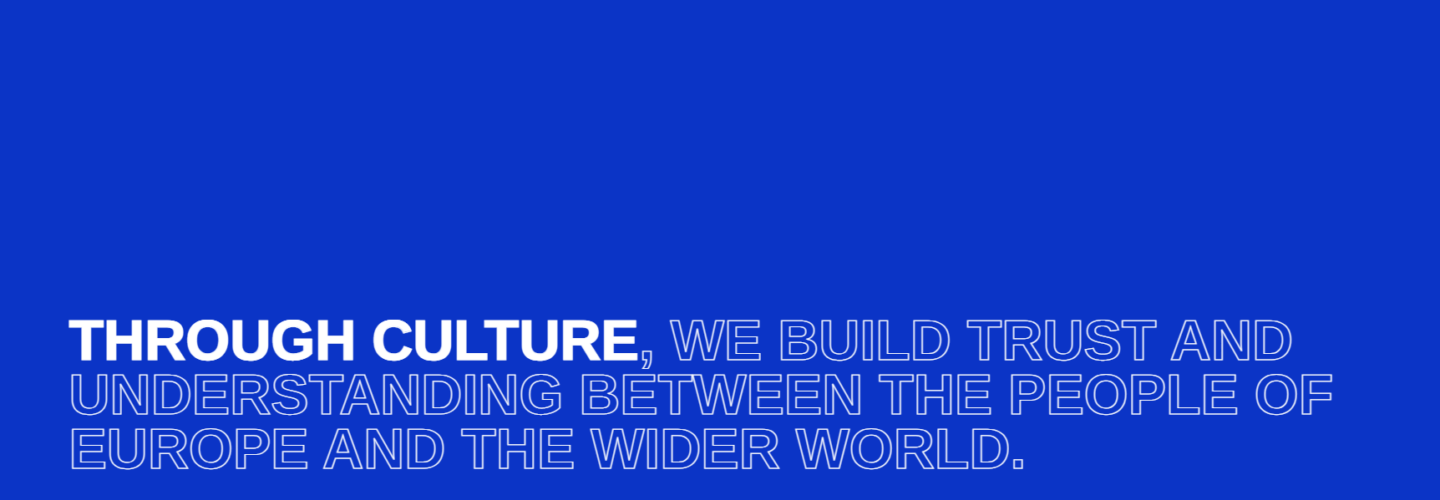
EUNIC
Danish Cultural Institute is a member of EUNIC
EUNIC – European Union National Institutes for Culture – is the European network of organisations engaging in cultural relations. Together with partners, EUNIC brings to life European cultural collaboration in more than 100 countries worldwide with a network of 132 clusters, drawing on the broad experience of the members from all EU Member States and associate countries.
EUNIC advocates a prominent role of culture in international relations and is a strategic partner of the EU, actively involved in the further definition of European cultural policy. EUNIC is a platform for knowledge sharing and for capacity building amongst its members and partners.
EUNIC’s work is based on the principles of cultural relations. We aim to build fair partnerships by practising mutual listening and learning and engaging in dialogue, co-creation, and joint capacity building.
EUNIC’s understanding of culture includes the arts, creative industries, development cooperation, digitalisation, education, gender, heritage, human rights, language and multilingualism, social inclusion, sports, sustainability, tourism, youth, and others.
The purpose of EUNIC is…
- to work together
- to promote cultural diversity and understanding
- to strengthen international dialogue and cultural cooperation
- to be a partner of the EU in defining and implementing EU cultural policy
- to advocate for the value of cultural relations and, as part of this, argue for a strong and independent voice for the cultural sector
- to conduct research and share best practices
Creative Europe
EUNIC is one of the 28 European networks supported by the Creative Europe programme of the European Union. It has continuously benefited from this support since 2014.
Clusters and members
EUNIC members join together in 132 clusters in 102 countries worldwide. Clusters are the network’s branches, established where at least three EUNIC members are represented. Clusters engage in cultural relations, co-creating activities with partner organisations. This map shows the global presence of EUNIC.
EUNIC members engage in cultural and related activities beyond their national borders. They are national institutes for culture or other organisations acting for or on behalf of a national entity, based in EU Member States. EUNIC unites both cultural institutes that operate at arm’s length from national governments and national bodies and ministries.
EUNIC currently counts 38 members based in all EU Member States and associated countries. Danish Cultural Institute is the only member to represent Denmark.
Danish Cultural Institute’s projects with EUNIC
Within EUNIC we are involved in a lot of projects as either lead partner, supporting partner, or member of steering groups.
We are right now lead partner in the project “Politics of Nature” within the European Spaces of Culture. The project is centered in Brazil.
Due to Brazil’s global importance to the climate as the world’s most biodiverse and fifth largest country, there is an urgent need to strengthen agency and engagement in the climate cause and environmental issues among Brazilian youth. In a large collaboration including Brazilian youth climate movements, institutions, NGOs and two UNESCO Creative Cities, this project proposes to engage and connect Brazilian youth across social borders for the climate and sustainability cause as well as to connect Brazilian and European youth by developing, distributing and activating a digital version of the game Politics of Nature or simply PoN for smartphones and tablets: The PoN mobile game.
European Spaces of Culture is testing innovative collaboration models in cultural relations between European and local partner organisations in countries outside the EU. At the heart of European Spaces of Culture lies a new spirit of dialogue, in which equality, mutual listening and learning represent the core values that help build trust and understanding between peoples.
Most of the text on this site is from EUNIC’s website and are therefore subject to change.